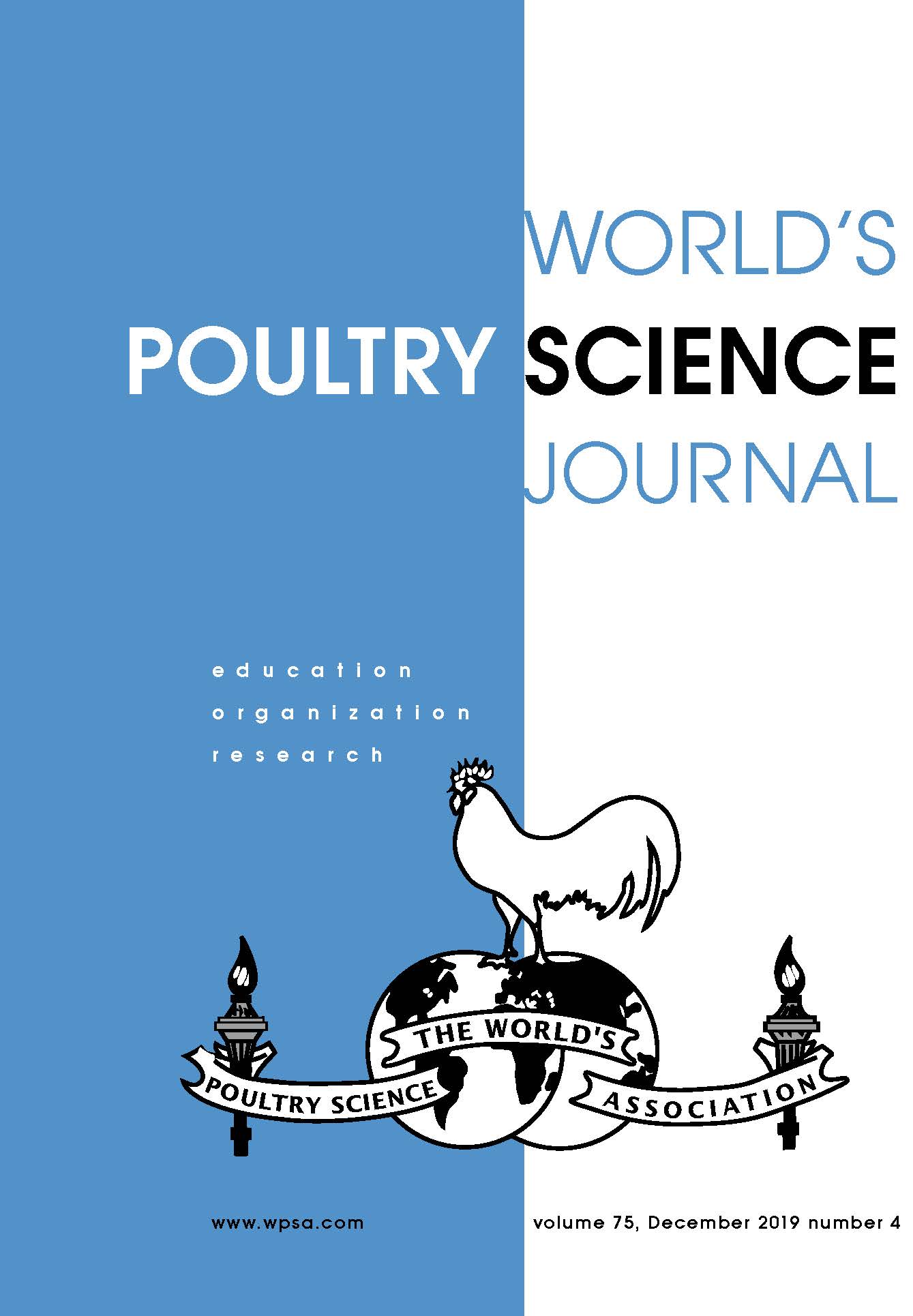Article contents
Whole grain in turkey nutrition. Part 2: Production results in different feeding systems
Published online by Cambridge University Press: 31 August 2016
Abstract
This review article discusses the production results of experiments performed on turkeys, where WG, mainly whole wheat (WW), was incorporated into diets with the use of different methods: i) pre-pelleting inclusion of WG, ii) post-pelleting inclusion of WG with dilution of the daily diet, iii) post-pelleting inclusion of whole grain without dilution of the daily diet and iv) free-choice feeding. The latest experiments conducted between 2012 and 2013 on turkeys fed WW indicated that: (1) pre-pelleting inclusion of 20% WW had no effect on the body weight (BW) of turkeys or feed conversion ratio (FCR), (2) moderate (up to 20% on average) dilution of standard turkey diets with WW had no effect on the final BW of birds or muscle yield, and improved feed utilisation, in particular when WW was fed instead of ground or pelleted grain, (3) post-pelleting inclusion of WG in diets supplemented with protein-mineral-vitamin concentrate allowed to increase the amount of WW up to 25 and 30% in the daily ration in feeding periods of 4-8 and 9-12 weeks, respectively. However, in free-choice feeding, WW can result in poorer growth performance of turkeys due to an inadequate total protein intake.
- Type
- Reviews
- Information
- Copyright
- Copyright © World's Poultry Science Association 2016
References
- 2
- Cited by


